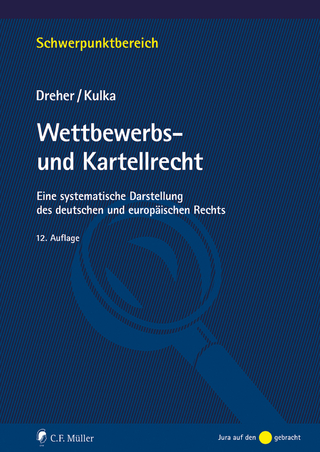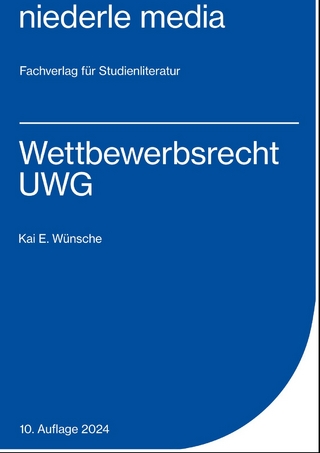
Anti-Dumping and Anti-Trust Issues in Free-Trade Areas
Seiten
1994
Clarendon Press (Verlag)
978-0-19-825920-6 (ISBN)
Clarendon Press (Verlag)
978-0-19-825920-6 (ISBN)
In today's interrelated economy, anti-dumping measures are highly contested by economists and less favoured interest groups. This work tries to clarify some of the issues involved in such a complex decision process.
In this book the legitimacy of anti-dumping measures in free trade areas is discussed. Economists argue that, generally, anti-dumping actions restrict and distort competition. In political terms, anti-dumping measures are biased in favour of a privileged interest group: the producers. Legally, they infringe the obligation of National Treatment contained in the GATT and NAFTA. Within regional groupings they contradict the guidelines of Article XXIV(8) (b) of the GATT. At the same time, anti-dumping measures are an exclusive exercise of sovereignty and would seem to protect statehood and arguably other national interests of any importing state.
The traditional alternative for anti-dumping actions has always been argued to be the application of domestic legislation against predation and price discrimination. It is suggested that this solution is inappropriate or at least incomplete. Many abuses, other than predation, can be exercised in transnational market: transnational vertical restraints such as tying, refusal to deal, restrictions on patents, trade marks and copyrights may all facilitate dumping. Indeed, in an international forum, what constitute market power and abusive conduct differ from what would otherwise be acceptable in a domestic market. Security and other national policies ought to be weighted against efficiency considerations.
In this context, the European framework of analysis, where variables additional to efficiency are balanced in competition assessments, provides a good model for such an international code of competition.
Indeed, within a regional economic grouping, interests may be different. Anti-dumping laws may be phased out if states are willing to see national distinction phasing out as well.
It is argued in this book that NAFTA can constitute a laboratory for needed discussion on an international code of conduct of firms and governments. It will then be suggested that anti-dumping actions could be phased out within NAFTA only if a comprehensive system of competition laws were to be enforceable against any transnational restrictive business practice. But for all states to agree on such legislation, they must have reached parallel.
In this book the legitimacy of anti-dumping measures in free trade areas is discussed. Economists argue that, generally, anti-dumping actions restrict and distort competition. In political terms, anti-dumping measures are biased in favour of a privileged interest group: the producers. Legally, they infringe the obligation of National Treatment contained in the GATT and NAFTA. Within regional groupings they contradict the guidelines of Article XXIV(8) (b) of the GATT. At the same time, anti-dumping measures are an exclusive exercise of sovereignty and would seem to protect statehood and arguably other national interests of any importing state.
The traditional alternative for anti-dumping actions has always been argued to be the application of domestic legislation against predation and price discrimination. It is suggested that this solution is inappropriate or at least incomplete. Many abuses, other than predation, can be exercised in transnational market: transnational vertical restraints such as tying, refusal to deal, restrictions on patents, trade marks and copyrights may all facilitate dumping. Indeed, in an international forum, what constitute market power and abusive conduct differ from what would otherwise be acceptable in a domestic market. Security and other national policies ought to be weighted against efficiency considerations.
In this context, the European framework of analysis, where variables additional to efficiency are balanced in competition assessments, provides a good model for such an international code of competition.
Indeed, within a regional economic grouping, interests may be different. Anti-dumping laws may be phased out if states are willing to see national distinction phasing out as well.
It is argued in this book that NAFTA can constitute a laboratory for needed discussion on an international code of conduct of firms and governments. It will then be suggested that anti-dumping actions could be phased out within NAFTA only if a comprehensive system of competition laws were to be enforceable against any transnational restrictive business practice. But for all states to agree on such legislation, they must have reached parallel.
Gabrielle Z. Marceau is Legal Affairs Officer with GATT in Geneva, and President of the Executive of the International Economic Law Society
| Erscheint lt. Verlag | 15.12.1994 |
|---|---|
| Verlagsort | Oxford |
| Sprache | englisch |
| Maße | 161 x 243 mm |
| Gewicht | 752 g |
| Themenwelt | Recht / Steuern ► EU / Internationales Recht |
| Recht / Steuern ► Wirtschaftsrecht ► Wettbewerbsrecht | |
| ISBN-10 | 0-19-825920-4 / 0198259204 |
| ISBN-13 | 978-0-19-825920-6 / 9780198259206 |
| Zustand | Neuware |
| Haben Sie eine Frage zum Produkt? |
Mehr entdecken
aus dem Bereich
aus dem Bereich
eine systematische Darstellung des deutschen und europäischen Rechts
Buch | Softcover (2023)
C.F. Müller (Verlag)
45,00 €


